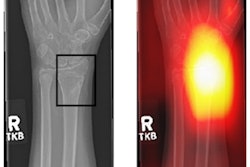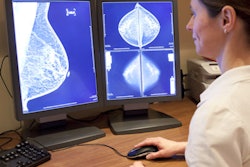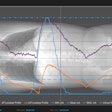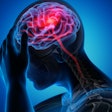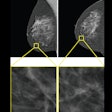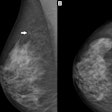
A new European survey suggests that the use of artificial intelligence (AI) algorithms in clinical radiology remains limited, largely because the impact of these tools on the reduction of radiologists' workload is still unproven.
Most respondents to the European Society of Radiology (ESR) survey considered AI algorithms to be generally reliable and experienced no major problems with technical integration in their daily practice. But only a minority of respondents experienced a reduction of the radiology department's workload due to use of AI algorithms, wrote the authors in an article posted on 21 June by Insights into Imaging.
The survey was created by members of the ESR's eHealth and Informatics Subcommittee using the Survey Monkey platform. In January, 27,700 radiologist members of the ESR were invited by email to participate, and the poll was closed after a second reminder in March.
A total of 690 ESR radiologist members from 44 countries responded to the survey, making a response rate of 2.5%. Of these, 276 respondents from 229 institutions in 32 countries had practical clinical experience of AI algorithms. In all, 143 (52%) of the respondents with clinical experience of AI algorithms were affiliated to academic institutions, whereas 102 (37%) worked in regional hospitals, and 31 (11%) in private practice.
Only 49 (17.8%) of respondents reported difficulties with integration of AI tools into the information technology (IT) system or workflow. Around 44.5% observed no such difficulties, although 37.7% of respondents did not answer this question.
Clinical use of algorithms
Algorithms were used in clinical practice either to assist interpretation or for prioritization of workflow. An overview of the scenarios for which AI algorithms were used by the respondents is given in the figure below.
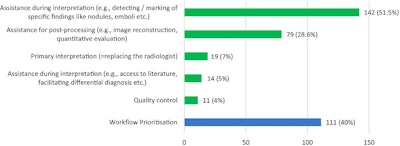
Of the 185 radiologists who used AI-based algorithms for diagnostic purposes, 140 (75.7%) considered the results of the algorithms generally reliable.
The use of a diagnostic algorithm was mentioned by 64 respondents (34.6%) in their reports, and 32 (17.3%) disclosed AI use to patients. Only 42 (22.7%) experienced a significant reduction of their workload, whereas 129 (69.8%) found that AI had no effect on workload.
"The important question remains to what extent AI-powered tools can reduce radiologists' workload," the researchers noted. "The results of the present survey are somewhat more optimistic."
Of 111 respondents who used AI-based algorithms for clinical workflow prioritization, 26 (23.4%) considered algorithms to be very helpful for reducing the workload of staff, whereas the others found them only moderately helpful (62.2%) or not helpful at all (14.4%).
Interestingly, only 92 (13.3%) of the total 690 respondents indicated that they intended to acquire AI tools.
When more experience with AI algorithms for specific scenarios is gained and barriers to their use are overcome, a follow-up survey could provide further insights into the usefulness of these tools, the authors concluded.
The survey was led by Prof. Dr. Christoph Becker and Prof. Dr. Elmar Kotter, with contributions by Prof. Dr. Laure Fournier and Prof. Dr. Luis Martí-Bonmatí. It was approved by the ESR Executive Council in May 2022.





